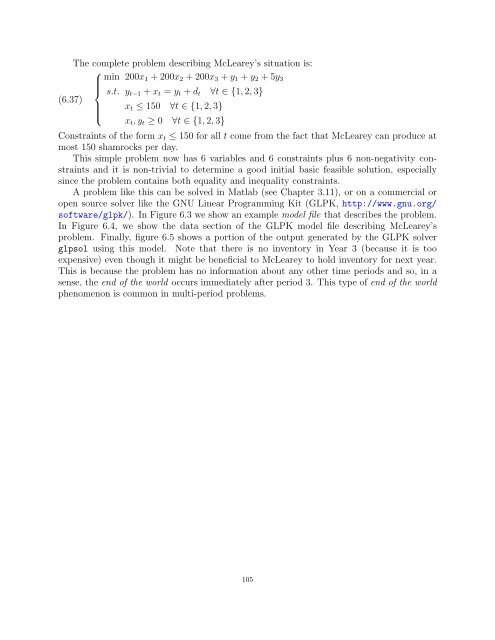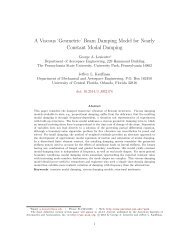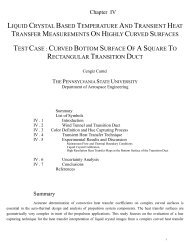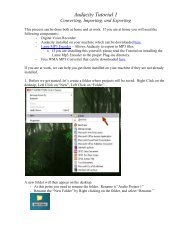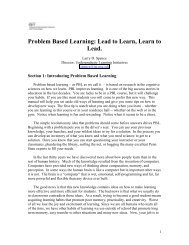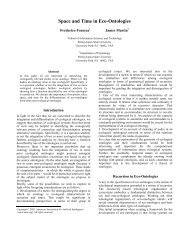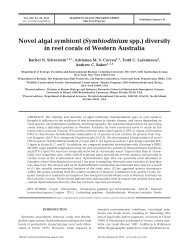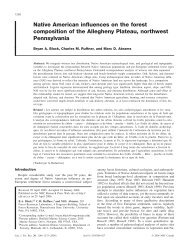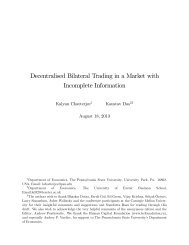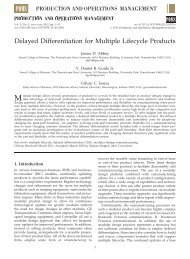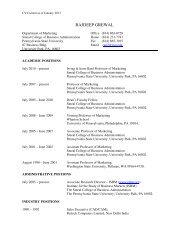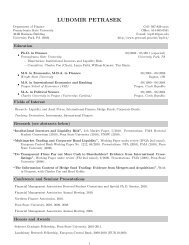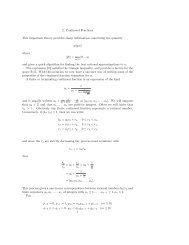Linear Programming Lecture Notes - Penn State Personal Web Server
Linear Programming Lecture Notes - Penn State Personal Web Server
Linear Programming Lecture Notes - Penn State Personal Web Server
Create successful ePaper yourself
Turn your PDF publications into a flip-book with our unique Google optimized e-Paper software.
The complete problem describing McLearey’s situation is:<br />
⎧<br />
min 200x1 + 200x2 + 200x3 + y1 + y2 + 5y3<br />
⎪⎨ s.t. yt−1 + xt = yt + dt ∀t ∈ {1, 2, 3}<br />
(6.37)<br />
xt ≤ 150 ∀t ∈ {1, 2, 3}<br />
⎪⎩<br />
xt, yt ≥ 0 ∀t ∈ {1, 2, 3}<br />
Constraints of the form xt ≤ 150 for all t come from the fact that McLearey can produce at<br />
most 150 shamrocks per day.<br />
This simple problem now has 6 variables and 6 constraints plus 6 non-negativity constraints<br />
and it is non-trivial to determine a good initial basic feasible solution, especially<br />
since the problem contains both equality and inequality constraints.<br />
A problem like this can be solved in Matlab (see Chapter 3.11), or on a commercial or<br />
open source solver like the GNU <strong>Linear</strong> <strong>Programming</strong> Kit (GLPK, http://www.gnu.org/<br />
software/glpk/). In Figure 6.3 we show an example model file that describes the problem.<br />
In Figure 6.4, we show the data section of the GLPK model file describing McLearey’s<br />
problem. Finally, figure 6.5 shows a portion of the output generated by the GLPK solver<br />
glpsol using this model. Note that there is no inventory in Year 3 (because it is too<br />
expensive) even though it might be beneficial to McLearey to hold inventory for next year.<br />
This is because the problem has no information about any other time periods and so, in a<br />
sense, the end of the world occurs immediately after period 3. This type of end of the world<br />
phenomenon is common in multi-period problems.<br />
105


